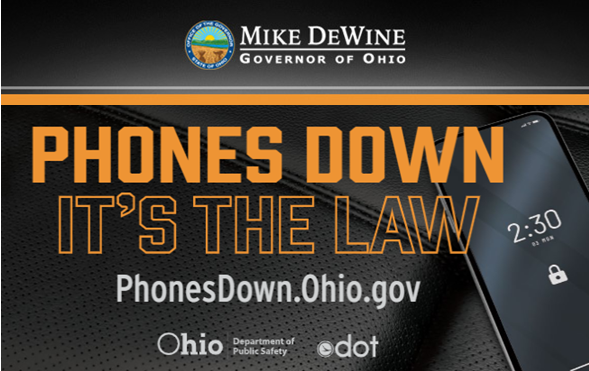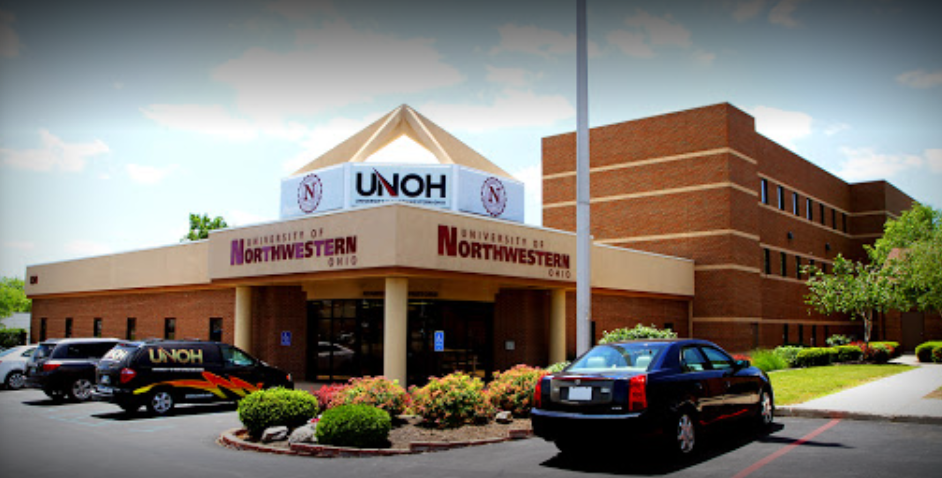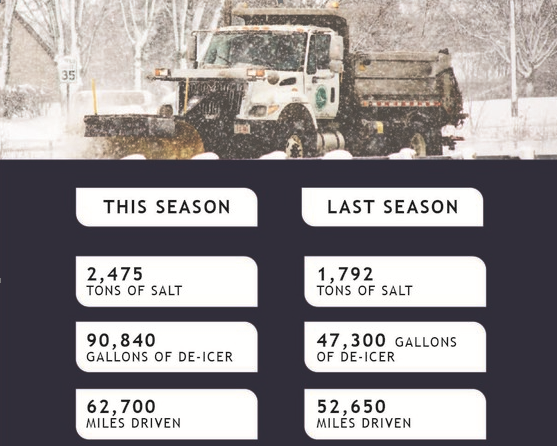Winter Storm to Impact Holiday Travel
Written by WKTN Staff on December 22, 2022

COLUMBUS, Ohio – As 4.6 million Ohioans get ready to travel this holiday, weather forecasters are predicting a winter storm that will bring treacherous travel conditions. AAA reminds travelers to prepare now and adjust plans, if necessary.
The majority (91%) of Ohio travelers will drive to their destination his holiday season. INRIX, a provider of transportation analytics and insights, expects Friday, Dec. 23 to be one of the most congested days on the roads. That’s also the day forecasters are predicting the worst driving conditions on Ohio’s roads.
Winter is the deadliest season on U.S. and local roads, according to an analysis from the AAA Foundation for Traffic Safety. Researchers found nearly half a million (456,000) crashes and more than 2,000 deaths occurred during adverse weather and/or road conditions during the winter months (December, January, February).
Since Ohioans haven’t driven in snowy conditions for months, it’s important to remember the following when driving in winter weather:
• Slow down: Always adjust your speed to account for less traction when driving on snow or ice. This often means driving below the posted speed limit.
• Accelerate and decelerate slowly: Apply the gas slowly to retain traction and avoid skids. Also remember, it takes longer to slow down on slick roads.
• Increase following distance: Allow five to six seconds of following distance between your vehicle and the one in front of you. The extra space will allow you time to stop safely.
• Never use cruise control: Using cruise control on any slippery (wet, ice, snow, sand) surface can cause your vehicle to lose control more easily.
• Don’t panic: If you start to slide, hitting the brake is the worst thing to do. Instead, take your feet off the pedals and keep your eyes focused on where you want to go.
• Leave early: Expect trips to take longer in bad weather.
Winter Breakdowns:
Roadside assistance calls often double, or triple, during winter weather. AAA is expecting extremely high call volumes Friday, Saturday, Monday and Tuesday. With temperatures expected to dip into the single digits at night, and highs in the teens and 20s, battery-related calls will most likely be the largest percentage of emergency roadside assistance calls.
Motorists can help prevent winter breakdowns with preventative vehicle maintenance, including:
• Battery: The average life of a battery is 3-5 years. Cold weather can drain batteries quickly, and leave drivers stranded. Have a technician inspect the battery at least twice a year.
• Tires: Adequate pressure and tread depth are essential for stopping and going on ice and snow, but tire pressure can drop during cold weather. Make sure tire pressure matches the sticker on the driver’s side doorjamb and the tread depth is above the wear bar indicators marked on the tires.
• Replace old windshield wipers and solvent: Precipitation and salty spray from the roads often make it hard to see when driving during the winter. Solvent and good windshield wipers can greatly improve visibility.
During winter storms and extreme cold, it may take longer for help to arrive. That’s why it’s important to be patient and pack an emergency roadside kit that includes blankets and extra clothes to stay warm, flashlights and extra batteries, an ice scraper, safety reflectors, a shovel, a first aid kit, a simple tool kit, water and non-perishable food, jumper cables and a mobile phone and charger to call for help.
Air Travel Tips:
AAA expects a 14% increase in air travel this holiday season, compared to last year, with 7.2 million Americans planning to fly. When winter storms hit, flight cancellations can ripple across the country. AAA travel advisors recommend the following for those flying this holiday season.
• Download your airline’s app to be sure you get push notifications on any delays or cancellations.
• Plan on arriving at the airport two hours before a domestic flight and three hours before an international flight.
• Check your flight status before leaving for the airport.
• Try to pack light and take a carry-on only, so your bag is always with you if your flight is delayed or cancelled.
• If you need to check a bag, put something like an Apple air tag in it, so you can track it if it’s lost. Also, pack all medications, snacks and change of clothes in a carry-on bag.
• Know your rights as an air passenger and review your airline’s contract of carriage for information on their policies for flight delays, cancellations and rebooking. By law, travelers are entitled to a refund when an airline cancels their flight.





